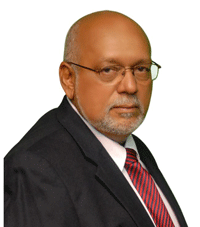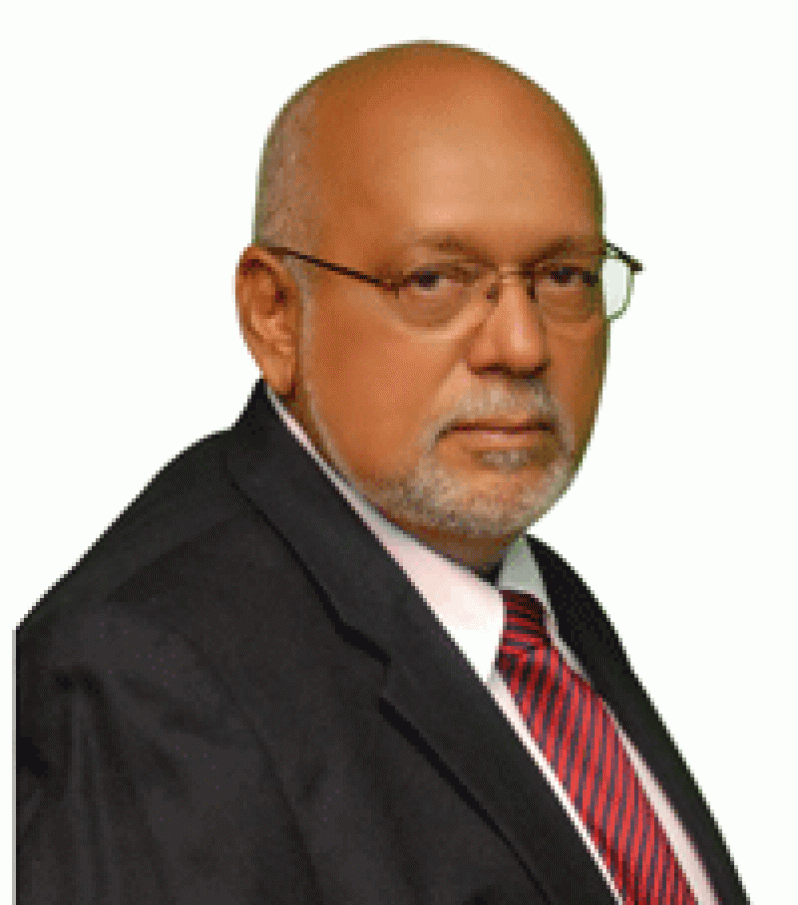WHILE the three-year-old People’s Partnership Government (PPG) of Prime Minister Kamla Persad-Bissessar was yesterday preparing to defeat an opposition “no confidence” motion, the 18-month-old administration of President Donald Ramotar in Guyana was pondering its timing for a snap general election that now seems unavoidable later this year.
 Leader of the opposition People’s National Movement (PNM) Dr Keith Rowley’s no confidence motion – debate on which commenced in Parliament on Monday – is based on submitted email messages purporting to suggest that the Trinidadian Prime Minister and members of her cabinet have been engaged in attempts to undermine the judiciary, parliament and national media.
Leader of the opposition People’s National Movement (PNM) Dr Keith Rowley’s no confidence motion – debate on which commenced in Parliament on Monday – is based on submitted email messages purporting to suggest that the Trinidadian Prime Minister and members of her cabinet have been engaged in attempts to undermine the judiciary, parliament and national media.
Even before speaking in parliament on the no-confidence motion – deemed by Attorney General, Anand Ramlogan, as “an act of opposition desperation”- the Prime Minister made public her request to acting Police Commissioner Stephen Williams to have the relevant email messages swiftly investigated to determine their authenticity.
With a whopping 17-seat majority in the 41-member House of Representatives, Persad-Bissessar, first woman Prime Minister of T&T and first to lead the United National Congress (UNC), the dominant party in her coalition administration, knows she can avoid losing sleep over Rowley’s no-confidence motion.
Indeed, given the nature of the country’s political culture, while Commissioner Williams probes the veracity of this matter of national importance, the Prime Minister can be expected to look ahead with confidence to the remaining two years of her first-term administration established three years ago this week.
CONTRASTING SCENARIO
In contrast, across in Guyana – where there are much similarities with the party politics, social relations and culture of Trinidad and Tobago – the first-term administration of President Ramotar may be compelled to arrange for a snap general election, though one is not constitutionally due before the end of 2016.
In control of state power since October 1992, when the first internationally-supervised free and fair national elections, in almost a quarter century, put an end to one-party rule by the People’s National Congress (PNC), the People’s Progressive Party (PPP) had grown accustomed to securing recurring electoral victories with comfortable majorities in the 65-member National Assembly.
However, after four consecutive five-year terms in government with plurality of seats in parliament, the PPP was led into the November 2011 poll for the first time by Ramotar, who was functioning as party General Secretary during the presidencies of first, Dr Cheddi Jagan and then his widow Janet.
| To judge from recent utterances and mood of President Ramotar, he seems to have concluded that the Guyanese people should be given the opportunity to determine the country’s political future at a snap poll later this year. |
The PPP failed, by one seat, to retain control of the National Assembly while winning the Executive presidency that has enormous powers under the constitution, including the right to refuse assenting any legislation approved by parliament.
The main opposition PNC, which had forged a coalition of a group of small parties, secured 26 seats under the banner of APNU (A Partnership for National Unity), while the Alliance for Change (AFC) won seven seats.
With their combined 33 votes to the PPP/C’s 32, APNU and AFC have been exploiting their one-seat majority to make life extremely difficult for the PPP/C, including slashing budgetary expenditures—as occurred last year and also this year—as confrontational politics became the norm.
CRUNCH TIME
The government has been hinting for some months that it may be obliged to call a snap poll unless it can secure the cooperation of the APNU/AFC coalition. Tripartite meetings (involving the PPP, APNU and AFC) with the President have generally proved unproductive – despite appeals for cooperation from the leading private sector organisation and labour unions.
Now crunch time seems to loom large over the opposition parties refusal to give support for parliament’s passage of a critical “Anti-Money Laundering and Countering of Financing of Terrorism” bill.
The deadline for the government to have the legislation approved by parliament is May 27—five days from today to avoid international sanctions, including threatened ‘blacklisting’ by the Organisation for Economic Cooperation and Development (OECD).
When President Ramotar declined giving his assent to two opposition bills passed earlier by parliament, the APNU/AFC coalition became more strident in their non-cooperation resolve against the government, ultimately reaching the current impasse over passage of the so-called ‘anti-money laundering bill’ and even teasingly speaking of their preparedness to return to the electorate.
To judge from recent utterances and mood of President Ramotar, he seems to have concluded that the Guyanese people should be given the opportunity to determine the country’s political future at a snap poll later this year.
That decision could well be announced either before or during the PPP’s biennial congress this coming August.




.jpg)










